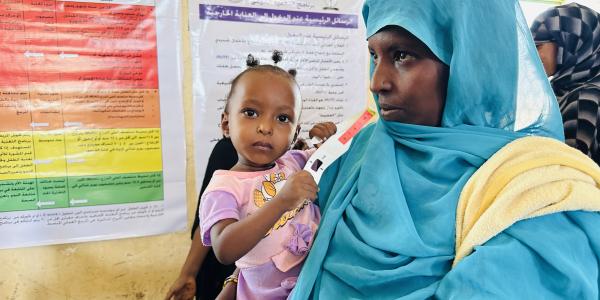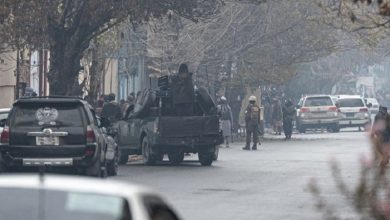SUDAN CONFLICT LEAVES 13.6 MILLION CHILDREN IN DESPERATE NEED OF HUMANITARIAN AID
Arshad Khan
Over 13.6 million children, the highest number ever recorded in the country, are in urgent need of lifesaving humanitarian assistance as the conflict in Sudan approaches six weeks. The impact of ongoing violence continues to pose a threat to the lives and futures of families and children, cutting off access to essential services and resulting in the closure, damage, or destruction of numerous health facilities.
Children in Sudan require humanitarian assistance more than ever before because the most at-risk groups struggle to survive and be protected. Admittance to fundamental necessities is turning out to be progressively challenging to get. Before the conflict began, nearly nine million children already possessed a pressing need for humanitarian assistance.
“The toll on children continues to grow more devastating by the day as the conflict in Sudan rages on,” stated Adele Khodr, UNICEF Regional Director for the Middle East and North Africa. These kids are not simply numbers, they are people with families, dreams and desires. They are the eventual fate of Sudan, and we can’t hold on while their lives are destroyed by brutality. Sudan’s children ought to have a chance at survival and success. No endeavors ought to be saved by all entertainers to safeguard the youngsters and their privileges”.
Access to food, clean water, electricity, and telecommunications that are unreliable, inaccessible, and unaffordable has exacerbated an already dire situation for children prior to the conflict. Over one million people in Sudan have fled their homes and are internally displaced. Of those, 319,000 have entered neighboring nations, half of whom are believed to be children.
Children’s displacement, lack of basic social services, and lack of protection will have devastating long-term effects if there is no immediate and extensive humanitarian response.
The general allure has expanded by US$253 million to meet the extra critical requirements, including to extend the treatment of more than 620,000 youngsters experiencing serious intense lack of healthy sustenance, a big part of whom might bite the dust on the off chance that not helped in time.
Khodr went on to say that UNICEF “continues to deliver in Sudan and together with partners we have been able to deliver much-needed health, water and sanitation, and nutrition supplies across the country” despite “challenges with humanitarian access and security due to the active conflict.” In particular, UNICEF has been successful in:
- Delivering 2300 MT in trucks loaded with health, nutrition, water and sanitation, and learning/child protection supplies to the displaced population in Madani and to states across the country.
- Maintaining immunization services across 12 states by securing vaccine supplies and distribution, as well as securing and monitoring the cold chain system. At least 244,000 children were reached with the Polio Zero Dose since the latest conflict started on 15 April.
- Maintaining over 80 per cent of the Malnutrition treatment centres (OTPs) across Sudan for children with severe wasting.
- Delivering 1,440 cartons of Ready-To-Use Therapeutic Food (RUTF) and health and hygiene supplies for over 300 children in an orphanage centre in Khartoum. Without such treatment, these children would be at high risk of dying.
- Providing 104,000 people with safe water through water trucking, operation and maintenance and rehabilitation of water supply facilities; 92,000 people were reached with key hygiene messages and hygiene-related non-food items; latrines were secured for 1,000 IDPs.
- Offered Psychosocial support to at least 5,500 children and their parents who are traumatized by the violence in Sudan. In addition, monitoring systems were activated to denounce and report violence against the children.
- Maintaining a total of 356 Alternative Learning Program (ALP) centres in 10 states, including West Darfur, and providing secure learning spaces for 16,812 girls and boys.
- Maintaining 42 e-learning centres in East Darfur, Kassala, Red Sea, South Darfur and White Nile, benefitting 2,520 girls and boys, and a child-friendly space in Port Sudan, benefiting 117 children.





